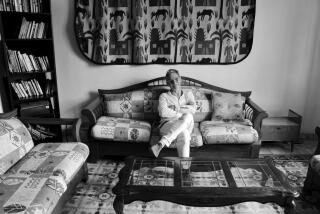FICTION
- Share via
THE CHINESE EMPEROR by Jean Levi, translated from the French by Barbara Bray (Harcourt Brace Jovanovich: $18.95; 329 pp.).
In the second half of the third Century B.C., the Kingdom of Ch’in succeeded in subduing six neighboring kingdoms and consolidating them to form an empire based largely on Taoist precepts. That empire has survived through the centuries in one form or another, and even now it underlies much of present-day China.
Jean Levi’s narrative is neither strictly a history nor a fiction but something in between. At one point he refers to his creation’s “political fable,” pointing out that “The Chinese Emperor” recounts in essence the formation of all centralized governments, with their tendencies to become monolithic and inhuman. The one “modern” element missing, according to Levi, is the use of “the Lie”; for the contenders in Ch’in and its rivals never hesitate to let their intentions be known.
Only a Sinologist will be concerned with Levi’s use of sources, the skillful way in which he has at times lifted passages from one document and put them into the mouths of characters found in others. For the general reader, the fascination of intrigue, the absorbing cast of characters ranging from butchers to concubines, the details of an elaborately luxurious court life, will be more than enough to sustain interest in this smooth translation of an original that follows the apparently disjunctive pattern of traditional Chinese prose narrative.
More to Read
Sign up for our Book Club newsletter
Get the latest news, events and more from the Los Angeles Times Book Club, and help us get L.A. reading and talking.
You may occasionally receive promotional content from the Los Angeles Times.










